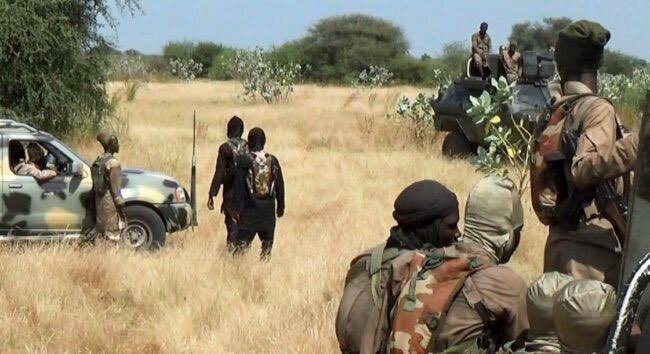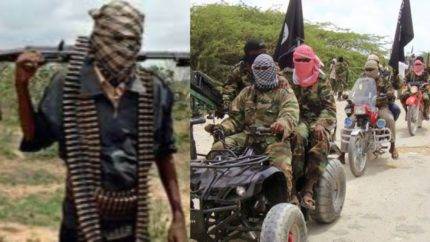Approximately 70 combatants and commanders lost their lives in a fierce clash between the notorious Boko Haram and its rival terrorist group, the Islamic State West Africa Province (ISWAP). This deadly confrontation occurred on Saturday at Tumbum Ali Island in Marte Local Government Area of Borno State, marking a significant escalation in the ongoing rivalry between the two extremist factions.
Recent intelligence reports suggest that the conflict between Boko Haram and ISWAP has intensified, fueled by a fresh influx of arms and combatants from the Sahel ISIS. The influx is aimed at bolstering ISWAP’s control over the Chad Basin region, reflecting a worrying trend of collaboration among different terrorist groups to consolidate their dominance. This surge in violence not only poses a grave threat to regional security but also exacerbates the already dire humanitarian situation.
Impact on Niger Republic and Refugee Crisis
As the deadly conflict between Boko Haram and ISWAP continues to unfold, the neighboring Niger Republic, particularly the Lake Chad Basin section, has become a focal point of their torments. Reliable sources indicate that the intensified attacks have compelled a significant number of Nigerian refugees in the Niger Republic to flee back home, resulting in the gradual overcrowding of the Internally Displaced Persons (IDPs) camp at Damasak, Mobbar Local Government Area of Borno State.
The influx of displaced individuals adds to the already strained resources in the IDP camp, creating a humanitarian crisis. The international community is urged to respond promptly to address the growing needs of the displaced population, as the conflict not only disrupts lives but also jeopardizes regional stability.

Strategic Objectives and Multi-National Joint Task Force
Both Boko Haram and ISWAP have not only sought to eliminate each other from the region but have also intensified their efforts to confront the Multi-National Joint Task Force. The strategic objective appears to be establishing firm control over the Chad Basin, heightening concerns about the broader implications for regional security. The clash at Tumbum Ali Island on Saturday underscores the determination of these terrorist groups to advance their agendas, posing a significant challenge to the Multi-National Joint Task Force’s mandate.
As the international community closely monitors the evolving situation, urgent collaborative efforts are needed to counteract the growing influence of these extremist factions. The stability of the Chad Basin region and the safety of its inhabitants hang in the balance, necessitating a coordinated response to mitigate the impact of this deadly power struggle
Retaliation Unleashed Between ISWAP & Boko Haram
In a disturbing turn of events, the ongoing conflict between the Islamic State West Africa Province (ISWAP) and Boko Haram has escalated into a retaliatory attack by ISWAP, marking a violent cycle of vengeance. This reprisal is reportedly in response to the massive killing of ISWAP fighters by the Bakura Buduma faction, which had seized control of most of their hideouts. Chad Basin security and counter-insurgency expert, Zagazola Makama, revealed that six boats belonging to the Bakura Buduma faction and four boats associated with the Jama’at Ahl as-Sunnah lid-Da’wah wa’l-Jihad (JAS) elements were destroyed in the intense confrontation. The boats were reportedly packed with fighters, emphasizing the scale of the clash.
Despite conflicting reports on the exact number of casualties, sources suggest that the death toll on both sides could exceed 60, with some estimates reaching as high as 70 or more. The fluid nature of the conflict has made it challenging to ascertain the precise figures, as the fighting continues to unfold in the volatile Chad Basin region.
Unraveling the Three-Pronged Terror
The incessant clashes between ISWAP and Boko Haram not only highlight the brutal power struggle between the two rival groups but also underscore a broader and complex dynamic in the region. According to security and counter-insurgency expert Zagazola Makama, the ongoing conflict portrays a three-pronged terror scenario, with the Multi-National Joint Task Force (MNJTF) attempting to maintain control on one front, while simultaneously dealing with the hostile engagements between the two extremist factions.
The strategic significance of the Chad Basin intensifies the gravity of these clashes, with both ISWAP and Boko Haram aiming to assert dominance over the region. As the conflict persists, it presents a formidable challenge for the MNJTF, whose mandate involves countering the threat posed by these extremist groups. The evolving situation demands a comprehensive and coordinated response to mitigate the impact of this three-pronged terror scenario and restore stability to the beleaguered Chad Basin region.
Table of Contents
Discover more from OGM News NG
Subscribe to get the latest posts sent to your email.














